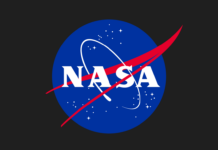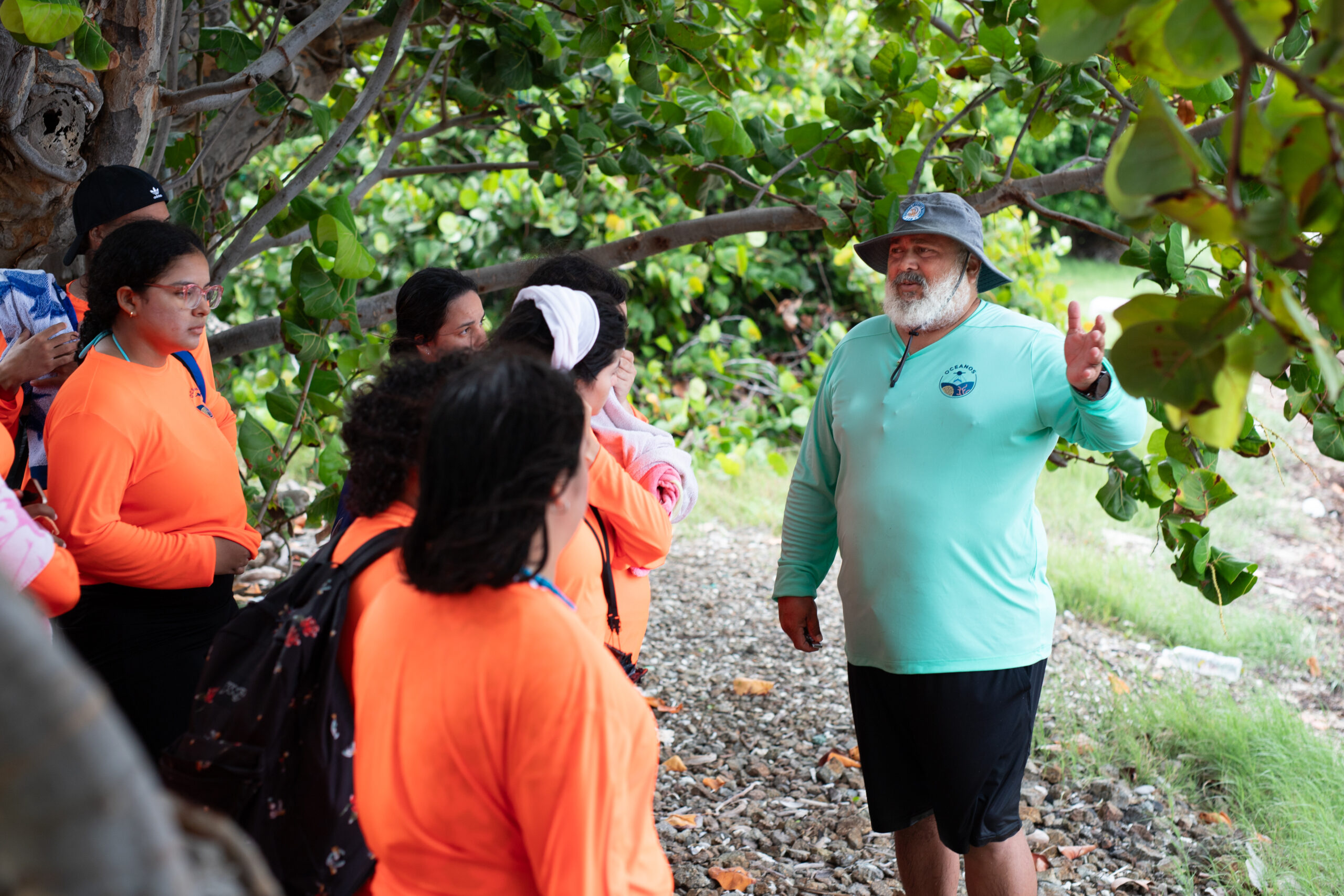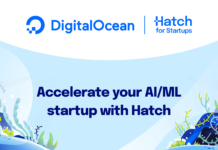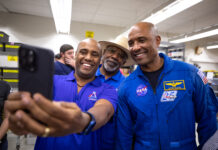The OCEANOS Internship: Fostering Marine Conservation Awareness in Puerto Rico
In the heart of Puerto Rico, a small but dedicated organization is making significant strides towards the conservation of marine ecosystems. Spearheaded by Samuel Suleiman, the Executive Director of Sociedad Ambiente Marino, this organization has been diligently working for over 25 years to preserve the coastline and vibrant reefs of Puerto Rico. Samuel Suleiman is not only an advocate for marine conservation but also a co-instructor for the OCEANOS internship, particularly focusing on the marine ecosystem of Culebra Island.
The OCEANOS internship is a unique and invaluable opportunity for students, especially those who have limited access to natural resources within Puerto Rico. As an archipelago, Puerto Rico consists of the main island surrounded by smaller islands. Unfortunately, a large portion of the population lacks awareness or understanding of these rich resources due to limited exposure and educational opportunities. This internship aims to bridge this gap by providing students with hands-on experiences that go beyond traditional classroom learning. Participants are not only exposed to lectures and marine science data but also encouraged to work collaboratively, fostering a sense of community and shared responsibility.
Through the OCEANOS internship, students have significantly increased their confidence in aquatic environments. What started as a hesitant exploration has transformed into a dynamic collaboration within various research groups. This change in mindset and attitude is crucial for the development of a more environmentally aware Puerto Rico and, by extension, a better world.
Samuel Suleiman’s journey into the realm of science began with a childhood aspiration to become a pediatrician. He embarked on his academic journey at the Natural Science College at the University of Puerto Rico. However, his path shifted towards science education. This shift was likely influenced by a near-drowning experience at the age of five, which, rather than instilling a fear of water, sparked a lifelong curiosity and desire to explore the oceans.
His personal narrative underscores the importance of creating a new generation of individuals who are committed to protecting natural resources. These individuals must be willing to take the necessary steps to build a better world and a more sustainable Puerto Rico. The OCEANOS internship is a testament to this vision, aiming to instill in participants a profound sense of belonging and responsibility towards the ocean, coastlines, beaches, reefs, and marine ecosystems. Samuel hopes that these students will emerge as ambassadors, advocating for the protection and preservation of these invaluable natural resources.
Understanding the Importance of Marine Conservation
The significance of marine conservation cannot be overstated. Oceans cover over 70% of the Earth’s surface and play a critical role in regulating the global climate. They are home to a diverse range of species, many of which are yet to be discovered. However, human activities have increasingly posed threats to these vital ecosystems. Pollution, overfishing, and climate change are just a few of the challenges that marine environments face today.
Marine conservation efforts, such as those undertaken by Sociedad Ambiente Marino, are essential in mitigating these threats. By educating the younger generation and instilling a sense of stewardship, programs like the OCEANOS internship are paving the way for sustainable interactions with the environment. Students who participate in such programs gain not only knowledge but also the skills needed to advocate for and implement conservation strategies in their communities.
The Role of Education in Conservation
Education plays a pivotal role in conservation efforts. By providing students with the tools and knowledge necessary to understand and appreciate natural resources, educational programs can foster a culture of conservation. The OCEANOS internship exemplifies this approach by offering students a comprehensive curriculum that includes both theoretical and practical components. This holistic approach ensures that participants are well-equipped to tackle environmental challenges.
Moreover, education can empower individuals to make informed decisions that positively impact the environment. As students learn about marine ecosystems and the threats they face, they become better equipped to advocate for policies and practices that promote sustainability. This empowerment is crucial for building a society that values and protects its natural resources.
The Impact of Community Involvement
Community involvement is another key component of successful conservation efforts. By engaging local communities, conservation programs can ensure that their initiatives are culturally relevant and sustainable in the long term. The OCEANOS internship actively involves local communities by encouraging students to collaborate and share their knowledge with others. This collaborative approach helps to build a network of informed and motivated individuals who can work together to protect the environment.
Additionally, community involvement can lead to innovative solutions to environmental challenges. By drawing on the diverse perspectives and expertise of community members, conservation programs can develop strategies that are both effective and inclusive. This inclusive approach is essential for addressing the complex and multifaceted nature of environmental issues.
The Future of Marine Conservation in Puerto Rico
The future of marine conservation in Puerto Rico looks promising, thanks in part to the dedicated efforts of organizations like Sociedad Ambiente Marino and initiatives like the OCEANOS internship. By investing in education and community involvement, these programs are laying the groundwork for a more sustainable and environmentally conscious Puerto Rico.
However, there is still much work to be done. Continued support for conservation efforts is essential to ensure the long-term health and vitality of Puerto Rico’s marine ecosystems. This support can come in various forms, including funding for educational programs, policy changes that promote sustainability, and community engagement initiatives.
Conclusion
The OCEANOS internship represents a beacon of hope for marine conservation in Puerto Rico. By providing students with the knowledge, skills, and experiences necessary to become stewards of the environment, this program is fostering a new generation of conservation advocates. As these students continue to grow and develop, they will undoubtedly make significant contributions to the preservation of Puerto Rico’s rich and diverse marine ecosystems.
For more information on Sociedad Ambiente Marino and the OCEANOS internship, interested readers can explore the organization’s website and learn more about their ongoing efforts to protect and conserve Puerto Rico’s natural resources.
For more Information, Refer to this article.






























